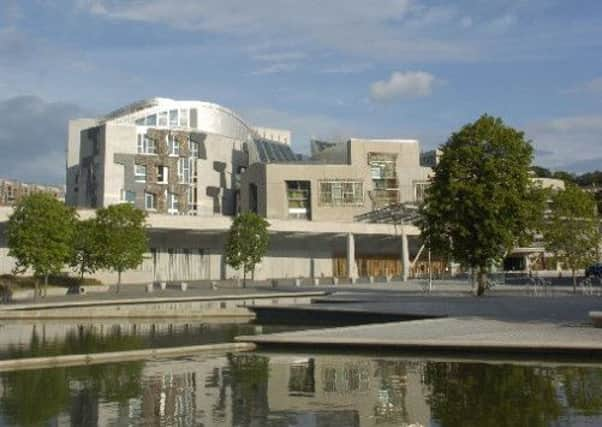Holyrood income tax powers inadequate warns Holtham


Speaking to Holyrood’s finance committee, Gerard Holtham, who chaired a commission in Wales examining the case for more devolved powers for the principality, backed a much wider remit to allow the Scottish Parliament to vary individual bands within the income tax system.
Under the forthcoming Scotland Act powers, Holyrood will take control of a new Scottish rate of income tax, allowing MSPs to reduce or increase the levy as they see fit. However, they will not be able to change the rates within the system, meaning that any change will apply to lower, middle and higher rates equally.
Advertisement
Hide AdAdvertisement
Hide AdProfessor Holtham told MSPs: “I’m not too keen on this 10p proposition. I think there are serious limitations on the 10p tax in the Scotland Act.”
He said he backed the recommendations of another review in Wales, which reported back last November. It supported a model allowing devolved parliaments to vary tax rates within the income tax system.
Such a model would, for example, give MSPs the power to reverse the recent decision by Chancellor George Osborne to lower the top rate of income tax to 45p without having also to increase income tax at the lower and middle rates.
Analysts believe that the income tax powers as passed in the Scotland Act will not be used extensively because of the lack of flexibility in the system, meaning that a future Scottish finance secretary may choose to keep Scottish rates in line with those in the rest of the UK.
One of the other academics who attended the finance committee yesterday, Professor John McLaren, of the Centre for Public Policy for Regions, said that, as a result, the new tax plans could end up being a “damp squib”.
The criticism comes after Scottish Labour’s Devolution Commission declared last week that there was a “strong case” for the complete devolution of income tax to Scotland, thereby allowing rates to be changed.
The Scottish Conservatives have also now reversed their own position and backed further devolution of powers.
However, the details of the pro-UK parties’ plan is not yet known. The Scotland Act powers are still due to be introduced in 2016.
Advertisement
Hide AdAdvertisement
Hide AdIn a lengthy session yesterday examining the implications of those new tax powers, other academics warned that any major change in income tax rates could lead to a new culture of tax-avoidance across the UK, as people and firms hunted around for the part of the country with the most attractive income tax rates.
Professor David Ulph, of the University of St Andrews, said: “If you have a different tax rate in Scotland, then it potentially opens up scope for tax avoidance.”
He said that such different tax rates may not on their own persuade firms and people to relocate but could end up being a “tipping factor”.
Other experts on the panel said that devolving income tax alone would leave MSPs akin to “a one-club golfer”, unable to balance decisions on one tax with those in another area.
Prof Ulph said that he too backed the idea of wider tax powers.